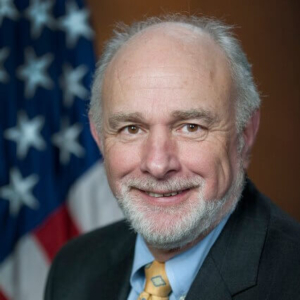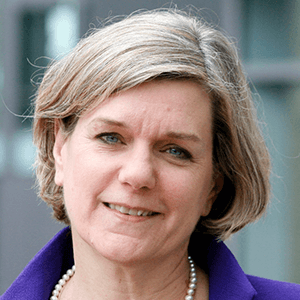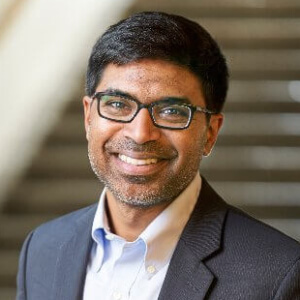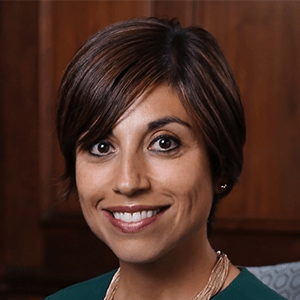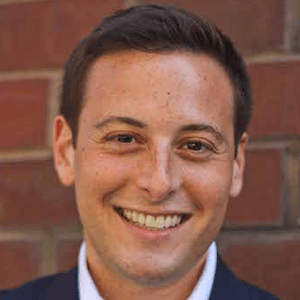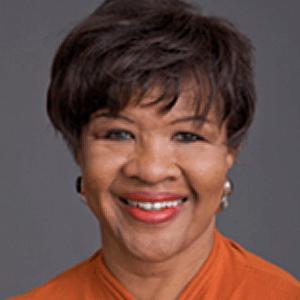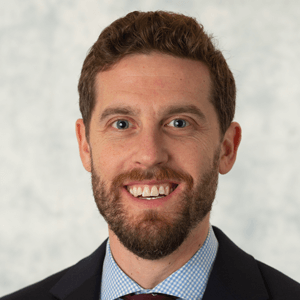The large observed racial divides in income, wealth, employment, and other markers of economic well-being between households is a well-known characteristic of the U.S. economy. These divides have a tragic human cost, but they are also a drag on our economy. Pay discrimination, barriers to wealth accumulation, and other forms of systemic racism prevent people from developing and fully deploying their human capital.
The Biden administration has made a public commitment to advance racial equity, including through an executive order signed on President Joe Biden’s first day in office that establishes an Equitable Data Working Group. Across many domains, federal data collection and reporting can be improved to better reflect the diversity of our economy. These improvements could then guide policymakers in implementing more finely tuned policies to address the legacy of systemic racism and the differential impacts of recessions and other economic shocks on communities of color.
This event convened a panel of academics to discuss some actionable areas of policy where the Biden administration could take steps to increase the quality and utility of economic data disaggregation and how these steps would lead to better policy outcomes.
Watch video of the event:
Speakers
Randall Akee
Randall Akee is an associate professor in the Department of Public Policy and American Indian Studies at the University of California, Los Angeles. He is currently on leave from UCLA and is a David M. Rubenstein fellow in economic studies at The Brookings Institution. Akee is an applied microeconomist and has worked in the areas of labor economics, economic development, and migration. He has conducted research on the determinants of migration and human trafficking, the effect of changes in household income on educational attainment and obesity, the effect of political institutions on economic development, and the role of property institutions on investment decisions. He also spent several years working for the state of Hawaii Office of Hawaiian Affairs Economic Development Division. He is a research fellow at the Harvard Project on American Indian Economic Development and the Center for Effective Global Action at the University of California, Berkeley. He serves on the National Advisory Council on Race, Ethnic, and Other Populations at the U.S. Census Bureau and is also a research associate at the National Bureau of Economic Research.
Corey Fields
Corey D. Fields is an associate professor and the Idol Family Chair in the Sociology Department at Georgetown University. His research explores the role of identity at the individual and collective levels in structuring social life. He draws on a cultural perspective—across a range of methodological approaches—that emphasizes the role of meaning and meaning-making, while recognizing that identities are enacted in specific social contexts. Fields is the author of Black Elephants in the Room: The Unexpected Politics of African-American Republicans. The book explores the dynamic relationship between race and political institutions in contemporary U.S. politics. He has published in Social Psychology Quarterly, Social Currents, Cultural Sociology, and Sociological Forum. He’s also published and has been cited in general media outlets. Currently, he’s working on a few new projects. One interrogates the relationship between social and professional identity through the experiences of African Americans in the advertising industry. Another uses interviews from the American Voices Project to examine racial differences in individuals’ experiences of the COVID-19 pandemic and protests against police injustice. A third project analyzes public organizational statements about COVID-19 and racial injustice.
Rakeen Mabud
Rakeen Mabud is the managing director of policy and research and chief economist at the Groundwork Collaborative. Mabud is an expert on economic inequality and the 21st century workplace, with a particular focus on how structural factors, such as racism and sexism, perpetuate inequities. Most recently, Mabud was the senior director of research and strategy at TIME’S UP Foundation, where she spearheaded the organization’s signature Time’s Up, Measure Up initiative. Prior to TIME’S UP, she was a fellow and the director of 21st century economy and economic inclusion programs at the Roosevelt Institute, where she wrote about how structural inequities interact with the distribution of power in the economy. Mabud also served in the Obama administration in the Office of Economic Policy at the U.S. Department of the Treasury. Her writing has been published in The Guardian, Forbes, Teen Vogue, Morning Consult, The Hill and Ms. Magazine, among other outlets.
Marie Mora
Marie T. Mora is associate provost for academic affairs and professor at the University of Missouri-St. Louis. Previously, she was professor of economics and associate vice provost for faculty diversity at The University of Texas Rio Grande Valley, and a professor of economics at The University of Texas-Pan American, which was consolidated to form UTRGV. Prior to that, she was a tenured faculty member at New Mexico State University. Mora earned her Ph.D. in economics from Texas A&M University, and B.A. and M.A. degrees (also in economics) from the University of New Mexico in her hometown of Albuquerque. Mora’s research interests are in labor economics, particularly in the areas of Hispanic/Latino labor market and other socioeconomic outcomes, including self-employment and migration. She has published on these topics in refereed journals such as the American Economic Review P&P, Industrial Relations, Journal of Population Economics, Social Science Quarterly, and International Migration Review, among others. Her books include Population, Migration, and Socioeconomic Outcomes of Island and Mainland Puerto Ricans: La Crisis Boricua (Lexington Books 2017), co-authored with Alberto Dávila & Havidán Rodríguez; the award-winning Hispanic Entrepreneurs in the 2000s (Stanford University Press 2013), co-authored with A. Dávila; and two co-edited/co-authored volumes (also with A. Dávila): The Economic Status of the Hispanic Population (Information Age Publishing 2013), and Labor Market Issues along the U.S.-Mexico Border (University of Arizona Press 2009). Mora has been invited to share her research expertise on Hispanic/Latino socioeconomic outcomes across the United States, including with the White House Initiative for the Educational Excellence of Hispanics; the White House Council of Economic Advisers; the Board of Governors of the Federal Reserve System; the Federal Reserve Bank of Dallas; and the U.S. Department of Labor; among other agencies and institutions.
Tracey Ross
Tracey Ross is a director at PolicyLink, where sheis focused on federal policy and narrative change. Most recently, she led the organization’s All-In Cites initiative, working with cities across the country to adopt policies and practices to ensure that people’s ZIP codes do not determine their life outcomes. She is also a contributing writer for Essence magazineand serves as a delegate to the U.S. Japan Leadership Program. Prior to joining PolicyLink, Ross worked at the Center for American Progress on urban poverty and environmental justice, and at Living Cities on building a green economy. She has been a guest on The Melissa Harris Perry Show on MSNBC, Inside Story on Al Jazeera English, and was a regular commentator for SiriusXM’s The Agenda. Her writing has appeared in The New York Times, The Washington Post, Essence, ThinkProgress, Ebony,and The Nation. Ross began her career in the offices of former U.S. Sen. Hillary Rodham Clinton (D-NY) and former U.S. Sen. Ken Salazar (D-CO). She completed her master’s degree in public affairs with a focus on urban policy and planning at Princeton University, and received a bachelor’s degree in political science and anthropology from the University of California, Berkeley.
Rhonda Vonshay Sharpe
Rhonda Vonshay Sharpe is an economist and mathematician, and the president and founder of the Women’s Institute for Science, Equity and Race. She is the co-editor of the Review of Black Political Economy and has served as president of the National Economic Association. She was previously on the Center for American Progress’ National Advisory Council on Eliminating the Black-White Wealth Gap and currently serves on the boards of the International Association for Feminist Economists and Diversifying and Decolonising Economics. Sharpe is a fellow in the inaugural cohort of the Progressive Policy Institute’s Mosaic Economic Project and was named a Black Scholar You Should Know by TheBestSchools.org and BlackEnterprise.com. Her research has been featured on the PBS News Hour, Marketplace, and the Kerri Miller Show, and in The New York Times, The Economist, and The Washington Post. She is a recurring guest on the BBC’s Business Matters and an opinion contributor to Bloomberg.com. Sharpe completed her undergraduate studies in mathematics at North Carolina Wesleyan College. She holds master’s degrees from Clark Atlanta University in applied mathematics, Stanford University in operations research, and Claremont Graduate University in economics. She completed her doctorate in economics/mathematics at Claremont Graduate University.
Danny Yagan
Danny Yagan is chief economist at the Office of Management and Budget.
Please direct questions related to event content to Computational Social Scientist Austin Clemens.
Please direct questions related to event logistics and technology to Events & Conferences Manager Natalie Intondi.










